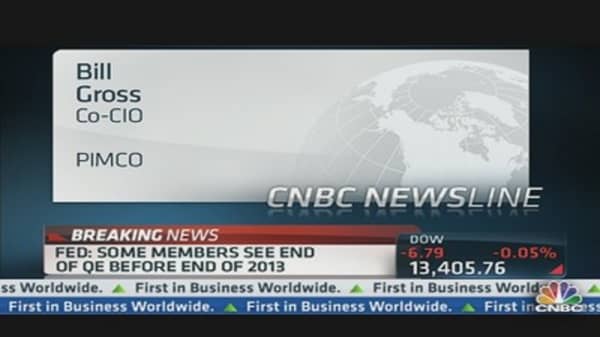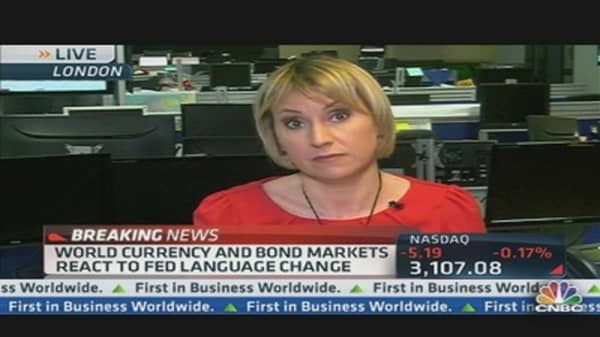In a surprise move, several Federal Reserve members said they want to end quantitative easing this year, but analysts said that doesn't mean the central bank will make a major policy shift anytime soon.
The Fed sent ripples through financial markets Thursday when minutes of its Dec. 12 policy meeting showed that "several" members would like to stop the bond-buying program before the end of this year. (Read More: Some Members See QE Ending This Year)
That prompted traders to speculate about an early end to the Fed's four-year stimulus program—and the threat of higher interest rates ahead.
"It's not a sea change," Bill Gross, Co-chief investment officer of PIMCO, told CNBC. "But it's a little bit of a surprise. The minutes basically say a few wanted QE to end about the end of 2013 and several wanted it well before. That means four or five members are in the opposing camp."
Treasury yields rose, the dollar gained, and stocks fell slightly after the 2 p.m. Fed release. The 10-year yield rose to 1.91 percent, its highest level since May 10. (Read More: Stocks End Lower on Fed Minutes)






